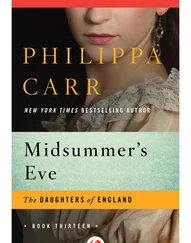So I looked this man straight in the face and what my mother said was true, for I discovered that he had a very special love for me and that my existence made him very happy.
I did not want to leave Trystan and my grandparents and they were very sad to see us go, I knew, although they tried to hide it. Then we were at sea on a little boat and that was not very pleasant.
But at last we arrived in France and there were people to meet us. I remember being wrapped in a cloak and riding with someone on a horse through the darkness to Château Congrève … and there I had been ever since.
Château Congrève! It sounds rather grand, but in fact is scarcely worthy of the name of Château. It is more like a large rambling farmhouse than a castle. It does have pepper-pot-shaped towers at the four corners of the building and there is a flat roof and ramparts. The rooms are lofty, the walls thick stone, and it is very cold in winter. There are pasturelands surrounding it, worked by the Lambard family who live in a hutlike dwelling nearby and supply us with our meat, bread, butter, milk and vegetables.
Château Congrève was lent to us by a friend of my father with two women servants and one man to look after us. It was refuge for our family until, as we said, England returned to sanity. We had to be grateful for it, my mother told Lucas and me, for beggars cannot be choosers, and in view of the fact that we were exiles from our country and had only been able to bring with us very few of our worldly possessions, beggars were exactly what we were.
It was not a bad place to grow up in. Lucas and I became very interested in the pigs in their styes, and the goats tethered in the field and the chickens who claimed the courtyards as their territory. The Lambards—father, mother, three stalwart sons and a daughter—were kind to us. They loved the little ones and made much of them.
Our mother stayed at the château when her children were born and those had been good times, but I knew that she was constantly uneasy because she was wondering what was happening to our father. He was in the King’s entourage, and where that might be none could be sure, for Charles wandered about the continent seeking hospitality where he could find it, always hoping that he would receive the necessary help which would enable him to regain his throne. As one of his greatest generals, our father could not be far away; and as soon as she could safely leave a new baby, our mother left us to be with him.
She had explained it to me who must in turn explain it to the others. “Here in Château Congrève you are safe and well. But your father must be near the King, and who knows where the King will be from one day to another? Arabella, your father needs me, but because you are here I can feel happy to leave the children in your care.”
Of course that delighted me. She knew my nature well because it was like her own must have been when she had been my age. I liked to feel that they were dependent on me. I would take care of everything, I promised her, until that happy day when the King regained his throne and we all went back to England.
So we lived our quiet lives in Château Congrève, where we had an English governess who had come to France before the Great Rebellion to teach a French family. She was very glad to come to us, and although we could not pay her well at the time, on that great day, which none of us ever believed would fail to come, she was to have her reward. Miss Black was middle-aged, tall, thin and learned, the daughter of a clergyman who told us often how glad she was to have left England before its shame, and she used to vow that she would never go back until the Monarchy was restored. She suited us well. She taught us reading, writing, arithmetic, Latin and Greek. French we spoke easily. She also taught us deportment, good manners and English country dancing.
My mother was delighted with her and said that we could count ourselves fortunate to be blessed with Miss Black. Lucas and I used to call her the “Blessing” behind her back. We wouldn’t have dared do so to her face, for we were extremely in awe of her.
There were long, dreamy summer days. Whenever I hear the cackle of a hen or sniff the pungent odour of goats and pigs, I am transported right back to those days at Congrève which I now realize were some of the most peaceful I was ever to know. I used to think sometimes that they would go on forever and ever and we should all grow old waiting for the King to regain his throne.
The sun seemed always to shine and the days never seemed long enough and I was always supreme. I led the games, which were usually playacting because that was what I preferred. I was Cleopatra, Boadicea and Queen Elizabeth, nor was I averse to changing my sex if the leading character did not belong to my own. Poor Lucas protested now and then, but as I was always the one who decided what games we should play, I demanded the major role. I can remember Dick and Angie wailing: “Oh, I am tired of being a slave.” Poor little things—they were so much younger than Lucas and I were that we considered it was a privilege for them to be allowed to enter our games at all.
The great adventure was evading the earnest Miss Black, who had a trick of turning any adventure into a lesson, which did not please any of us. Our existence was one long attempt to avoid her. Yet we were fond of her in a way; she was part of our lives; she constantly told us that everything that was unpleasant was for our own good, and I could imitate her precise manner in such a way that sent the others nearly hysterical with laughter.
It was really due to Miss Black that I began to fancy myself as an actress. That must have been particularly hard for my family to endure, for I would learn passages from Shakespeare by heart and inflict my histrionics on my long-suffering brothers and sister.
We forgot during the long summer days that we were exiles. We were pirates, courtiers, soldiers, participating in glorious adventures, and I, delighting in my superior years, ordered their lives.
“You should sometimes stand aside and let Lucas take the lead,” Miss Black used to say, but I never took her advice.
So the years passed; now and then my parents would be with us. They were times of rejoicing. But then they would go away, very often out of France, for the King was in Cologne most of the time and where he was they must be.
Sometimes during their brief stays at Congrève I used to listen to their talk over the dinner table when Lucas and I were allowed to join them. There would always be some scheme for taking the King back to his rightful place. The people were tiring of Puritan rule. They were remembering the old days of the Monarchy. “Soon now …” they used to say. But still it failed to happen, and life at Château Congrève pursued its pleasant way. We would all be melancholy after our parents had left, then some new game would absorb us and we would forget them and forget about going home. The days of exile were sweet enough, and we were soon back to the old game of outwitting that lovable bogey, Miss Black.
One morning Miss Black did not appear. She was found dead in her bed. She had died during the night of a stroke. And instantly, it was said, so she suffered no pain. She had died as discreetly as she had lived, and she was buried in the cemetery close to the château, and every Sunday we would take flowers to her grave. We could not inform her relatives even if she had any, for all we knew was that they were in England and naturally we could do nothing about that.
We talked about her a great deal; we missed her sadly. Not to have to escape from her, not to poke gentle fun at her made a great gap in our lives. Once I caught Lucas crying because she wasn’t there anymore, and after accusing him of being a crybaby I found myself weeping with him.
Читать дальше












